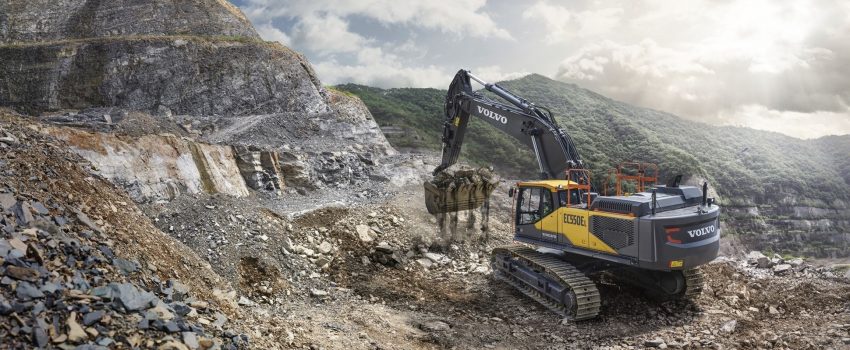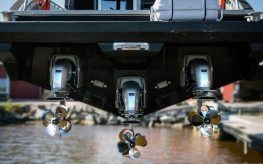Volvo Construction Equipment has announced its commitment to the SBTI (Science Based Targets) targets to achieve zero emission of pollutants in its production chain by 2040, with significant reductions already in 2030. The measure has been taken in line with the intention of the company to reduce its impact on carbon emissions and help meet the objectives of the Paris Agreement, the United Nations treaty that governs gas reduction actions to curb global warming.
The SBTIs (Science-Based Targets) are an initiative to drive ambitious climate action in the private sector, allowing companies to set science-based emission reduction targets. The zero greenhouse gas emissions target is a joint commitment by the Volvo Group in all business areas and was set for 10 years before the SBTi agreement, taking into account the average age of the equipment used by customers. For the entire fleet to have zero emissions by 2050, it is necessary that all products delivered from 2040 onwards do not produce polluting gases.
Volvo CE has also set its own 2030 targets, including halving emissions from its own operations, facilities and manufacturing processes, achieving an absolute 30% reduction in the use of its products. Indirect emissions represent the largest proportion of the company’s carbon diffusion. In the case of the construction machinery industry, most emissions are generated when the machines are in use, once they leave the factories.
“Climate change is real and one of the greatest challenges of our time. As one of the world’s leading manufacturers of construction equipment, we are not solely responsible for reducing our carbon footprint. We also have a clear vision, a lot of determination and many talents to drive this transformation that is as urgent as it is necessary. What we choose today will shape the world of tomorrow. We choose to act, ”says Melker Jernberg, President of Volvo CE.
Volvo CE is already committed to decarbonisation through its cutting-edge technologies and also through its participation in climate change initiatives such as the Construction Climate Challenge (CCC) and the WWF Climate Savers ProgramWWF. With SBTi, the company has another tool to ensure reductions are in line with the latest climate science to meet the Paris Agreement.
Union make force
The brand is taking a holistic approach to tackling climate change. Volvo will continue on its proven innovation path of embracing all three strands of electromobility: battery-powered machines, equipment powered by hydrogen fuel cells and improved internal combustion engine solutions. Volvo CE will also continue its work with leading industry associations to accelerate the development of new technologies, working together with customers to bring sustainable solutions to market and collaborating with dealers and suppliers to explore new ways of working.
“Advances in technology are one of the key ways to reduce carbon footprint,” says Niklas Nillroth, Volvo CE’s Head of Sustainability and Public Relations. “Another important driver for achieving these goals will be a new level of collaboration, both internal and external, through associations. Only through joint efforts, in which each of us takes responsibility for our part with a holistic mindset, can we collectively achieve these important goals. Together, we help build the world in which we want to live ”, concludes the executive
The SBTi are a collaboration between CDP, the United Nations Global Compact, the World Resources Institute and the World Wide Fund for Nature (WWF). The initiative helps companies set science-based targets to reduce greenhouse gas emissions and transform business operations to accommodate the low-carbon economy.






